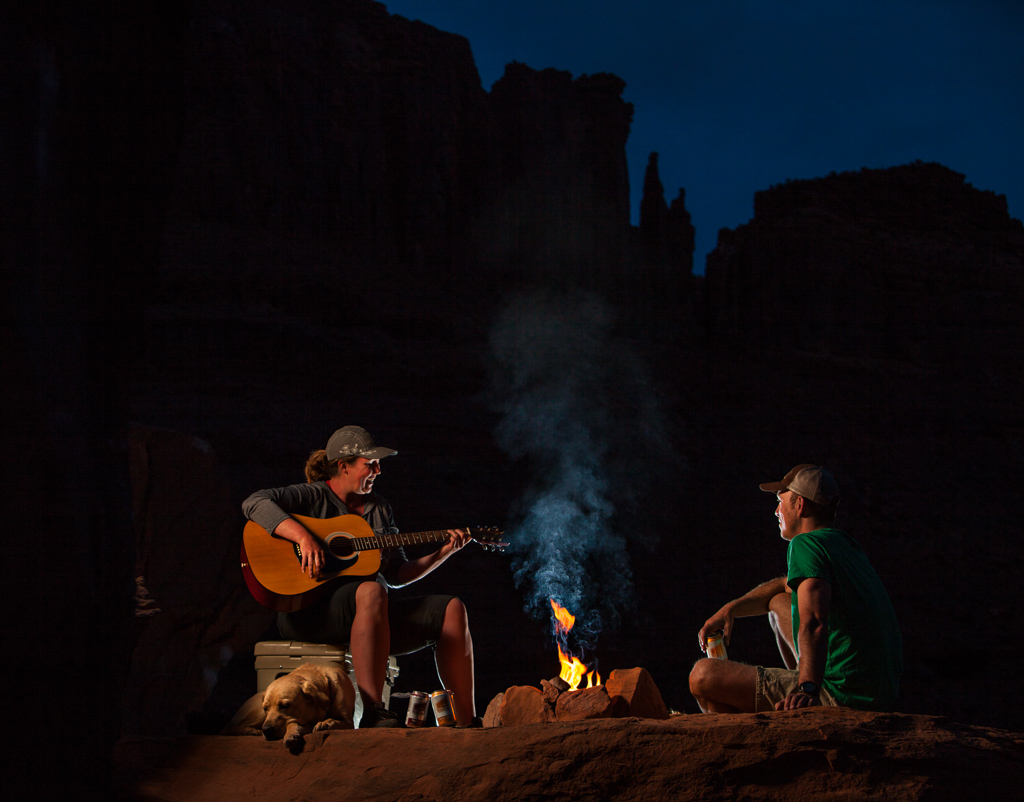
A Quick Reminder About Campfire Safety
Most of our fondest camping memories are of sitting around a fire, roasting marshmallows and telling stories. But as fun as it is, fire can also be dangerous. It is important to take it seriously and make responsible decisions for the safety of your family and those around you.
If you have been watching the news lately, it is clear that fire season is upon us. There have been some horrible fires this year already -- especially in the western parts of the U.S. Unfortunately, human error is the cause of multiple fires each year. Even if the fire spread by accident, these people will still be held responsible for not taking the necessary precautions -- and that often includes legal prosecution.
So, if you are camping this summer and plan to start a fire, make sure to be responsible and follow these basic guidelines to ensure a fun and safe RVing trip!
1. Know the level of fire danger and rules in your area.
As an RVer, it is important to know of any special precautions to take in whichever area you plan to park your rolling home -- so, do a little research before you set out on the road. This may even mean changing your route if that makes the most sense for a safe trip. Similar to checking weather, keep an eye on if you are in an area with a strong chance for fire or bans on fires altogether. If you aren't sure, check with a park ranger or campground attendant before starting a campfire. Also, make sure there aren't any rules on where fires are allowed, how big they can be, etc.
2. Keep a shovel and bucket of water nearby.
If you are going to start a fire, make sure you have the right supplies. It is important to keep a shovel and bucket of water nearby, not only to put the fire out with, but also to have on hand if it gets out of control.
3. Pick and prepare a good spot for your fire.
If there are no restrictions on fires and you are allowed to start one, make sure you assess the location first. Many campgrounds have designated fire pit areas, but even in these it is important to check for overhanging trees and other nearby brush. If one is not provided, make a campfire ring with rocks in a level area far enough away from tents and RVs and dig a pit in the center. Before lighting the fire, make sure you clear away any pine needles, leaves or other brush from around the fire ring (10 feet in diameter is usually recommended). For tips on lighting a fire, check out these from Smokey Bear.

Photo by Peter Holcombe.
4. Never leave fires unattended or let it get out of control.
Once you have your fire, make sure to stay nearby. Don't start a fire if you are planning to leave your campsite soon after. You should stay until it has completely burned out or put it out yourself. Make sure to watch children and pets carefully around fires, as well. It is also important to keep fires at a manageable size and not let them get out of control.
5. Extinguish the fire completely when finished.
The Colorado Division of Fire Prevention & Safety, recommends the "drown, stir and feel" method. This involves drowning the fire with water first, then stirring around the fire with a shovel to ensure everything is wet before fully smothering it with additional dirt and mixing that thoroughly. Lastly, they suggest feeling the area with the back of your hand to ensure nothing is still smoldering. If it is too hot to touch, it isn't safe to leave unattended.
For more tips on fire safety, the Smokey Bear website is a great resource: https://smokeybear.com/en
While this is a serious topic, it shouldn't take away from any of your camping fun if you just take some time to prioritize safety when you create and put out your fire.
Here's to s'more fun this summer and safe camping!
Comments
Comments on this post are moderated, so they will not appear instantly. All relevant questions and helpful notes are welcome! If you have a service inquiry or question related to your RV, please reach out to the customer care team directly using the phone numbers or contact form on this page .